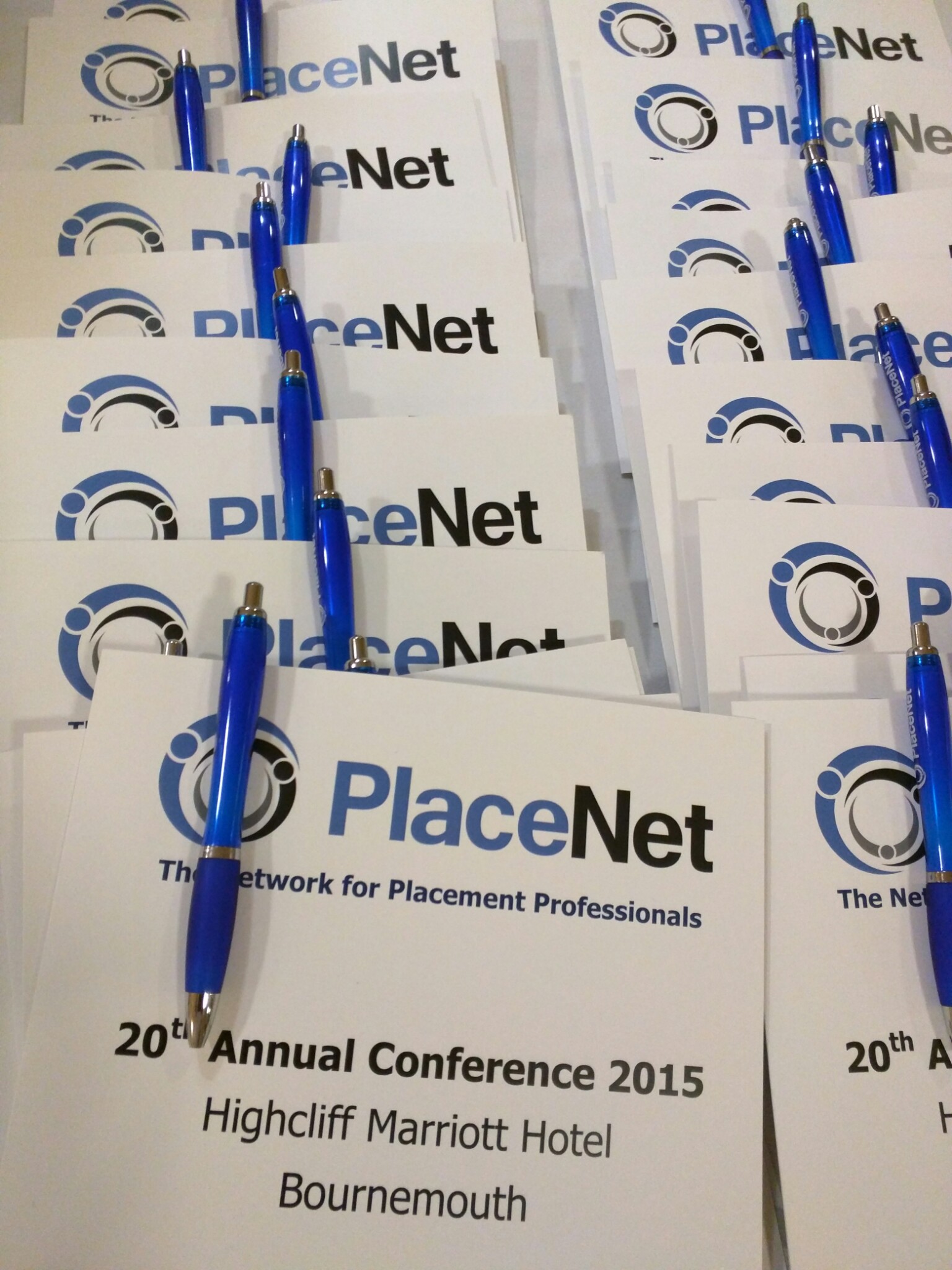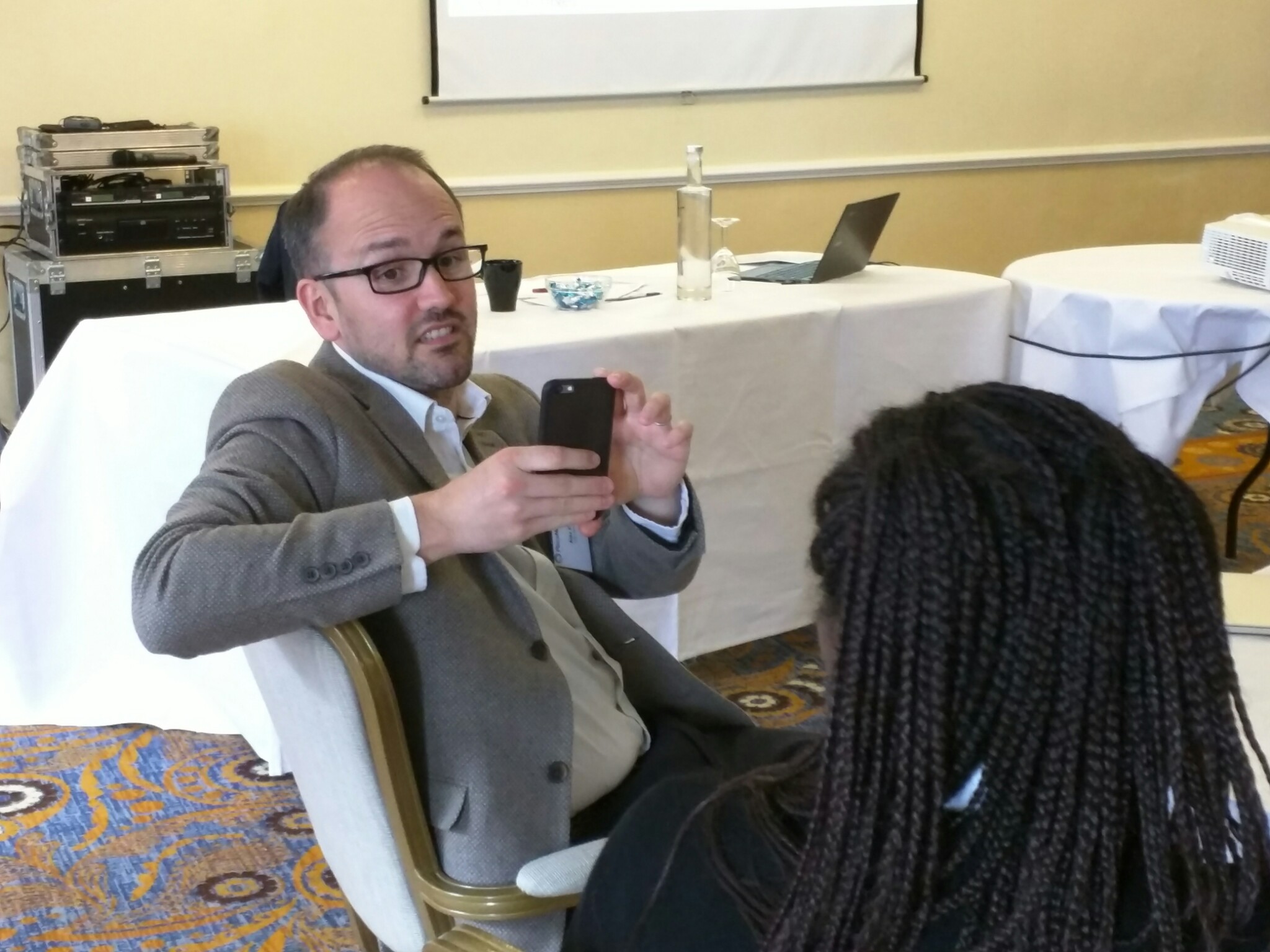May 21st, 2015 by matthias
 It’s always the most exciting part of my professional placement year – the annual PlaceNet conference. For three days, placements and employability professionals from about 20 universities discuss academic placements, employer engagement, and how to provide a quality student experience in an ever more austere funding regime. It’s exciting for me, as, since 2011, I am chairing it. You can follow the conference on Twitter under #PlaceNet15.
It’s always the most exciting part of my professional placement year – the annual PlaceNet conference. For three days, placements and employability professionals from about 20 universities discuss academic placements, employer engagement, and how to provide a quality student experience in an ever more austere funding regime. It’s exciting for me, as, since 2011, I am chairing it. You can follow the conference on Twitter under #PlaceNet15.
At yesterday’s first day, we saw five presentations: Kate Croucher, University Relationship Manager for FDM Group, gave her perspective from having recently moved from the world of university employability into industry. It was very interesting to hear how her understanding of universities – and how they function on the inside – is perceived by employers working with them. This was followed by an informative presentation on the social media habit of university students by Lizzie Brock and Alex Field from RateMyPlacement.They also focused on how placement services can build a content strategy when engaging with their students. Here is where the true theme of the afternoon emerged – the use of video.

PlaceNet Trustee Alex Elkins practising video interviewing
Charlie Reeve from Grad Consult picked up this topic, in his talk about expectation gaps within the world of higher education. He talked about how recorded video interviewing is becoming ever more popular with employers, and how important it is for students to be prepared for this. Charlie demonstrated this by getting the participants to video interview each other using their mobile phones.
A theme picked up again by Vanessa Airth, from London Metropolitan University, who talked about how the Business and Law School, uses video presentations for student assessment on their short placement module. The presentations finished with Mike Grey, from Coventry University’s EC Futures team, discussing how to ensure placement quality.
What followed were fresher’s drinks – sponsored by RateMyPlacement – and celebrating 20 years of PlaceNet with a yummy cake. What struck me as most interesting during this day, was that content creation and sharing (especially video) seems to be the hot topic for employers and students. Without planning it, this PlaceNet conference seems to become more of a hackathon focused on the uses … no, the dominance of technology, which has now clearly reached the world of higher education. This theme will recur in tomorrow’s installment on day 2.
Posted in Education & Employability Tagged with: digital literacy, employability, employers, higher education, PlaceNet
May 20th, 2013 by matthias
Have you ever been frustrated with your manager for being slow with implementing what you had identified as mission critical and needed to be done right now? Was he sitting there, listening, apparently attentive, maybe even looking caring – but then nothing happened, at least not … well, right now? Well, this manager is me now. This is a realisation I had when participating in an excellent session by Gill Frigerio (@gillfrigerio) at the #PlaceNet13 conference (quick note: I chaired it – but can’t claim ownership of any epiphanies): Gill was doing an exercise with the assembled placement professionals, showing us a simple self-coaching exercise – and by golly, I learnt quite the lesson. I’ve been feeling stressed recently, and it wasn’t the volume of work, but a clear inability to let decisions and actions flow as I used to. Over the last years, moving up in organisations, I’ve gained a lot of responsibilities – but hilariously not necessarily more power to take them on in a swift and uncomplicated way. No wonder managers have a reputation for being ineffective. I always worked on the magic assumption that both would somehow go together, once I’m successfully climbing the chain of command. It was always my line manager, or people higher up the chain, with whom decisions would be stuck, I felt. All they needed to do was use their powers and unstick them – they said they agreed, but why did everything take so long? Once I’d be in their role, I’d just do stuff. It turns out that gaining responsibility and power don’t go along with each other at all, or at least at the same speed – and that exerting power isn’t the answer to getting stuff done sustainably either. The higher you move and the more you know about the organisation, the more you see complexities and consequences – and that almost always a strategic approach is required to solve issues rather than merely a tactical one. There are no quick wins (I was never a fan) – most of them end being rather pyrrhic. And using power to push something through tends to work against your agenda in the longer term.
The great philosopher Peter Parker (aka Spiderman) has termed the iconic words ‘With great power comes great responsibility . I jokingly often changed that into ‘with no power comes great responsibility’ for my workplaces – not knowing how right I was all along: ‘Moving up’, does not go with more power, or the ability to move things along – it’s mostly responsibility and perspective that you gain. It merely gives you access to others who may help you move things along – but they are mostly busy with their own strategic objectives (and often you can only hope that they align). Of course this depends on the type of organisation, but the reach of a manager in academia is astonishingly narrow: not that you can’t make decisions (I’ve pretty much always had that in most my jobs), but you simply can’t push them through – as you’re surrounded by people with similar reach, but no power either.
So far so frustrating, but why does this make me feel better? Any lesson like this would be worthless if it didn’t come with a call to change the agenda, to make it happen (whatever it is). Now what’s not going to happen is that I miraculously turn into some managerial super hero (even though I just got the shiny crystal trophy of my employer’s directorate leadership & management award) – as still I have gained no additional powers. Not even the strategy (often a word for just writing down your agenda, as if it makes it suddenly more real) will change that much – what I can however change are the tactics which I apply to achieve them. And for that, I have a couple of ideas (but mostly attitude), thanks to what I’ve learnt recently. Thanks, Gill.
[youtube=http://youtu.be/IKmQW7JTb6s]
Posted in Work life Tagged with: coaching, management, never give up, PlaceNet, responsibility, spiderman, stress, The power of giving up
 It’s always the most exciting part of my professional placement year – the annual
It’s always the most exciting part of my professional placement year – the annual 